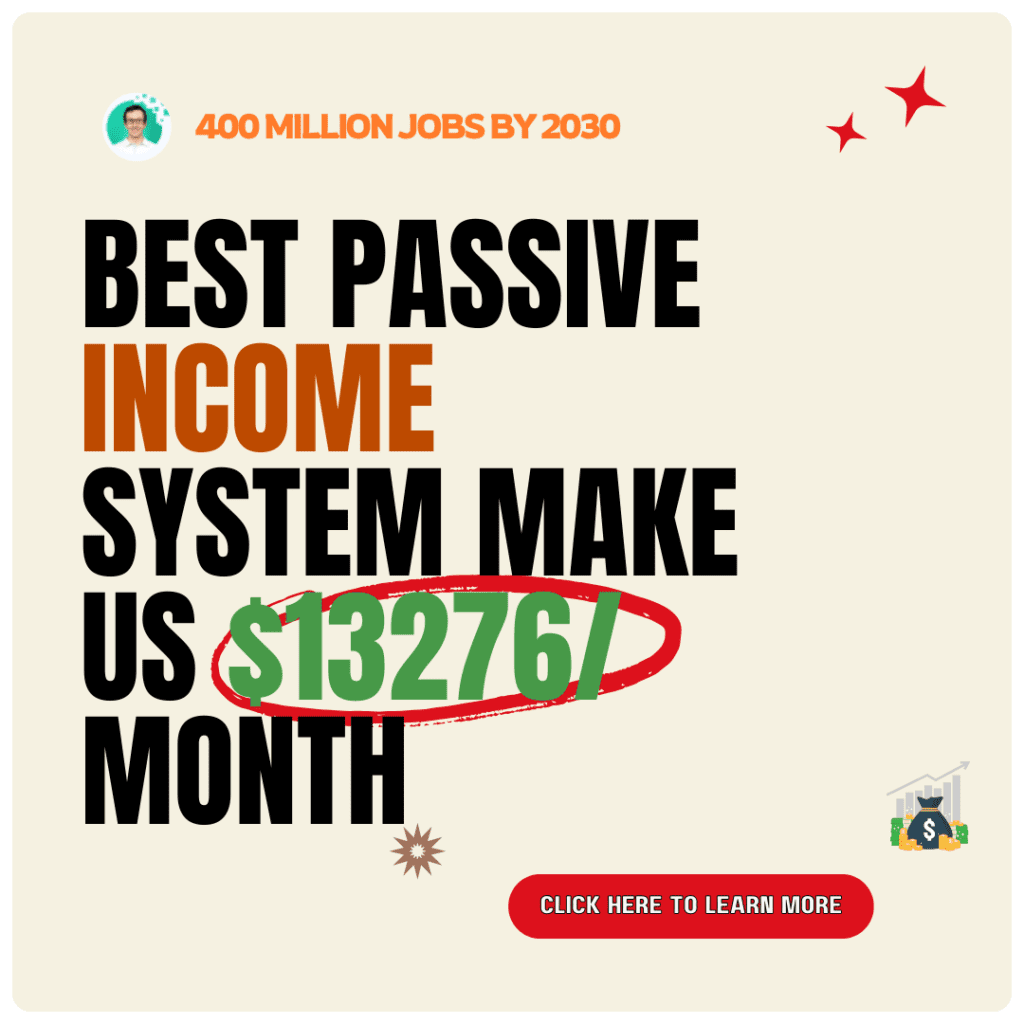The freedom and flexibility of freelancing are becoming more and more popular among professionals in today’s quickly changing job market. Freelancers have the freedom to choose the projects they work on, set their own hours, and be their own bosses. However, with the level of competition among freelancers rising, it’s important to go above and beyond simply developing your talents and producing high-quality work. To stand out from the competition and draw clients that value your particular skill, you must successfully advertise yourself.
My Best Recommended & Proven Way to Make $100 Daily – Watch THIS FREE Training to START >>

In this blog post, we will explore the vital aspects of marketing yourself as a freelancer, focusing specifically on branding and promotion strategies. We will delve into the importance of defining your brand as a freelancer, building a compelling online presence, leveraging social media platforms, networking and building relationships, showcasing your expertise, and more.
By understanding and implementing these strategies, you can establish a strong personal brand, amplify your visibility, and position yourself as an expert in your field. Whether you’re a graphic designer, writer, developer, or any other type of freelancer, these strategies are applicable to any freelance profession.
So, if you’re ready to take your freelance career to the next level, let’s dive in and explore the world of marketing yourself as a freelancer through effective branding and promotion strategies.
I. Defining Your Brand as a Freelancer
Personal branding plays a pivotal role in establishing your identity as a freelancer. It’s about uncovering what sets you apart and crafting a distinct image that resonates with clients. By identifying your unique strengths, skills, and values, you can create a brand statement or elevator pitch that succinctly communicates your expertise and value proposition. Furthermore, developing a consistent brand voice and visual identity across your communication channels helps create a memorable and cohesive impression.
II. Building an Online Presence
Freelancers must have a strong online presence in the present digital world. It is critical to build a polished, user-friendly website. Your website should exhibit your portfolio, customer reviews, and contact information, starting with choosing a domain name that accurately represents your business and building a visually appealing layout. Additionally, strategically placing keywords on your website and building high-quality backlinks can help to increase its visibility and draw in new visitors.
III. Leveraging Social Media for Promotion
Social media networks give independent contractors a fantastic opportunity to connect and interact with a huge audience. You may increase your visibility and successfully entice customers by carefully choosing the platforms that will best serve your target market, producing interesting and shareable content, working with influencers or relevant communities, and using paid advertising choices.
IV. Networking and Building Relationships
Networking is a powerful tool for freelancers to expand their client base and foster valuable connections. Attending industry events, joining online communities, and actively engaging with peers and potential clients are effective ways to establish relationships. Following up and maintaining regular communication further strengthens these connections, leading to potential collaborations and referrals.
V. Showcasing Your Expertise
For freelancers to establish reputation and draw clients, it is essential to demonstrate your knowledge. Effectively exhibiting your knowledge involves producing worthwhile content through blogging or guest blogging, providing free resources like e-books or webinars, looking for chances to speak at conferences or take part in interviews, and collecting endorsements and evaluations.
My Best Recommended & Proven Way to Make $100 Daily – Watch THIS FREE Training to START >>
Defining Your Brand as a Freelancer
Your personal brand as a freelancer is your unique selling proposition in the market. It encapsulates what makes you stand out from the competition and why clients should choose you. To define your brand effectively, consider these key tips:
- Identify Your Unique Strengths: Reflect on your skills, experiences, and strengths that set you apart. Determine the specific areas where you excel and differentiate yourself from others in your field.
- Understand Your Target Audience: Gain a deep understanding of your target audience’s needs, preferences, and pain points. Tailor your brand messaging to resonate with them and address their specific challenges.
- Craft a Compelling Brand Statement: Create a concise and powerful brand statement that communicates your value proposition. It should clearly state who you are, what you do, and how you can help clients achieve their goals.
- Develop Consistency in Brand Voice and Visuals: Establish a consistent brand voice that aligns with your personality and resonates with your audience. Additionally, create a cohesive visual identity through elements like logos, color schemes, and typography that reflect your brand’s essence.
- Showcase Your Unique Personality: Inject your personality into your brand. Let your authentic self shine through in your communications, interactions, and content. This personal touch helps foster stronger connections with clients.
- Stay True to Your Brand: Consistency is key. Ensure that every aspect of your freelance business, from your website to your social media presence, reflects and reinforces your brand identity. Consistency builds trust and reinforces your expertise.
By following these tips, you can define a compelling and authentic brand that sets you apart as a freelancer and attracts your ideal clients.
Building an Online Presence
In the digital age, establishing a strong online presence is essential for freelancers to showcase their skills and attract clients. To build a robust online presence, consider these key tips:
- Create a Professional Website: Invest in a well-designed and user-friendly website that represents your brand. Include a clear overview of your services, a captivating portfolio, testimonials from satisfied clients, and easy-to-find contact information.
- Optimize for Search Engines (SEO): Implement SEO strategies to improve your website’s visibility in search engine results. Conduct keyword research relevant to your niche and incorporate those keywords naturally into your website’s content, headings, and meta tags.
- Engage on Social Media: Choose the social media platforms where your target audience is most active and establish a consistent presence. Share valuable content, engage with your audience, and leverage social media advertising to expand your reach.
- Leverage Content Marketing: Create and share high-quality content that showcases your expertise. Start a blog, contribute guest posts to industry publications, or create valuable resources such as e-books or webinars. Consistently provide value to your audience.
- Build a Professional Network: Actively participate in industry forums, online communities, and networking events. Establish connections with potential clients and industry peers. Collaborate on projects, share insights, and nurture relationships for long-term success.
- Monitor Your Online Reputation: Regularly monitor and manage your online reputation. Respond to client feedback, address any concerns promptly, and maintain a professional online presence. Positive reviews and testimonials can boost your credibility.
By following these key tips, you can establish a robust online presence that showcases your skills, attracts clients, and positions you as a reputable freelancer in your industry.
Leveraging Social Media for Promotion
Social media has revolutionized the way freelancers can market themselves and connect with their target audience. To effectively leverage social media for promotion, consider these key tips:
- Choose the Right Platforms: Identify the social media platforms where your target audience is most active. Focus your efforts on those platforms to maximize your reach and engagement.
- Create Engaging Content: Share valuable and relevant content that showcases your expertise. Provide insights, tips, and industry trends to establish yourself as a thought leader. Use visuals like images and videos to enhance engagement.
- Encourage Audience Interaction: Foster meaningful conversations with your audience by encouraging comments, asking questions, and responding to inquiries. Actively engage with your followers to build relationships and loyalty.
- Collaborate with Influencers and Communities: Seek opportunities to collaborate with influencers or join relevant communities in your niche. Guest posting, co-creating content, or participating in industry discussions can help expand your reach and gain credibility.
- Utilize Paid Advertising Options: Consider investing in social media advertising to amplify your reach and target specific audiences. Utilize targeting options to reach potential clients based on demographics, interests, and behaviors.
- Analyze and Adapt: Regularly analyze your social media metrics to understand what content performs well and resonates with your audience. Adjust your strategy based on the insights gained to continually improve your social media presence.
By following these key tips, you can effectively leverage social media to promote yourself as a freelancer. It allows you to build brand awareness, engage with your target audience, and attract potential clients to propel your freelance career forward.
My Best Recommended & Proven Way to Make $100 Daily – Watch THIS FREE Training to START >>
Networking and Building Relationships
Networking is a powerful tool for freelancers to expand their professional circles, gain valuable connections, and attract potential clients. To make the most out of networking and build strong relationships, consider these key tips:
- Attend Industry Events: Actively participate in industry events, conferences, and meetups. These gatherings provide opportunities to meet like-minded professionals, exchange ideas, and forge meaningful connections.
- Join Online Communities: Engage with online communities, forums, and social media groups that are relevant to your niche. Contribute valuable insights, offer assistance, and establish yourself as a trusted and knowledgeable resource.
- Establish Connections: Take the initiative to introduce yourself and engage in conversations with fellow professionals, potential clients, and industry influencers. Approach networking with genuine curiosity, listening actively and showing a sincere interest in others.
- Follow Up and Maintain Relationships: After initial encounters, follow up with the individuals you connected with. Send personalized messages expressing your pleasure in meeting them and expressing interest in continuing the conversation. Maintain regular communication to nurture relationships.
- Provide Value: Offer your expertise and support to others in your network. Share relevant resources, make introductions, or offer assistance when you can. By providing value, you foster a reciprocal environment that strengthens relationships over time.
- Leverage Digital Tools: Utilize digital tools like LinkedIn, email, and professional networking platforms to stay connected with your network. Engage with their content, congratulate their achievements, and stay top of mind.
By following these key tips, you can harness the power of networking to expand your professional network, foster valuable connections, and create opportunities for collaborations, referrals, and long-term success as a freelancer.
Showcasing Your Expertise
As a freelancer, demonstrating your expertise is essential for gaining credibility and attracting clients. To effectively showcase your expertise, consider these key tips:
- Create Valuable Content: Start a blog or contribute guest posts to establish yourself as an industry expert. Share valuable insights, tips, and trends that showcase your knowledge and provide value to your audience.
- Offer Free Resources: Create e-books, guides, or webinars that address common challenges or provide solutions in your niche. These resources not only demonstrate your expertise but also serve as lead magnets to attract potential clients.
- Seek Speaking Engagements: Look for opportunities to speak at industry conferences, webinars, or podcasts. Sharing your expertise in a public forum elevates your visibility, establishes you as a thought leader, and expands your professional network.
- Obtain Testimonials and Reviews: Request testimonials and reviews from satisfied clients. These testimonials serve as social proof of your expertise and quality of work, instilling confidence in potential clients.
- Participate in Online Discussions: Engage in online discussions, industry forums, and social media groups relevant to your field. Offer insights, answer questions, and provide helpful resources to showcase your expertise and build your reputation.
- Continuous Learning and Growth: Stay updated with industry trends, new technologies, and emerging practices. Invest in professional development, attend workshops or online courses to enhance your skills and demonstrate your commitment to staying at the forefront of your field.
By following these key tips, you can effectively showcase your expertise as a freelancer. Demonstrating your knowledge, providing valuable resources, and actively participating in industry discussions will position you as an authority in your niche, attracting clients who recognize and appreciate your expertise.
Conclusion
Marketing yourself as a freelancer through effective branding and promotion strategies is crucial for achieving success in today’s competitive landscape. Throughout this comprehensive guide, we have explored key areas that can help you establish a strong personal brand, build an impressive online presence, network effectively, and showcase your expertise.
By defining your brand, identifying your unique strengths, and crafting a compelling brand statement, you set the foundation for attracting clients who resonate with your values and offerings. Building an online presence through a professional website, optimized for search engines, ensures that potential clients can easily find and engage with your work.
Leveraging social media platforms allows you to amplify your reach, engage with your target audience, and showcase your expertise through valuable content. Networking and building relationships open doors to collaborations, referrals, and invaluable industry connections.
Lastly, showcasing your expertise through content creation, speaking engagements, testimonials, and continuous learning positions you as an authority in your field.
Remember, marketing yourself as a freelancer is an ongoing process. It requires consistent effort, adaptability, and a commitment to personal and professional growth. By implementing the strategies outlined in this guide, you can elevate your freelance career and attract clients who recognize and value your expertise.
Take action today, implement these branding and promotion strategies, and unlock the full potential of your freelance journey. With dedication and a strong marketing foundation, you can thrive as a freelancer and build a successful and fulfilling career.
My Best Recommended & Proven Way to Make $100 Daily – Watch THIS FREE Training to START >>
Thanks for reading my article on “Marketing Yourself as a Freelancer: Branding and Promotion Strategies“, hope it will help!














